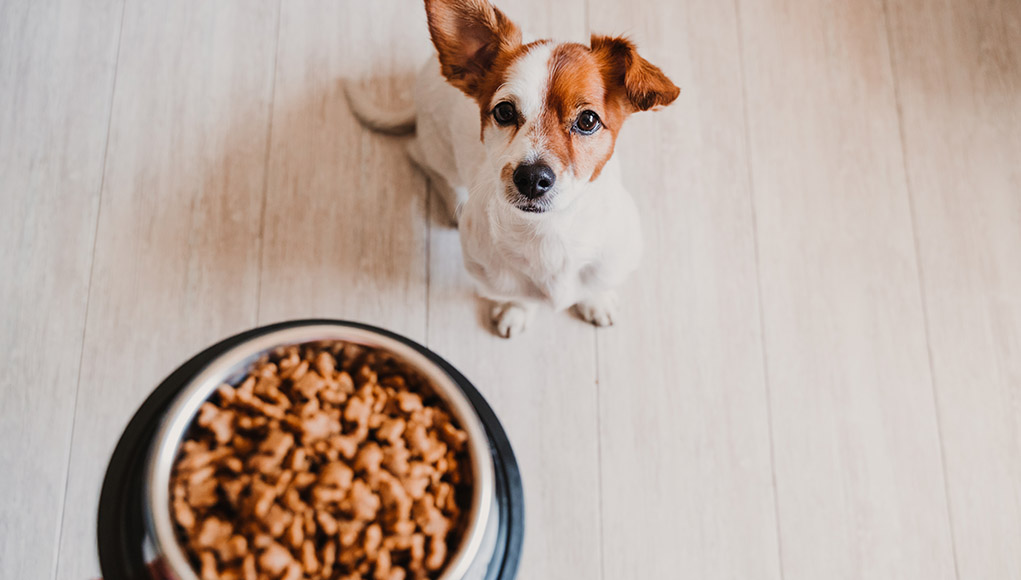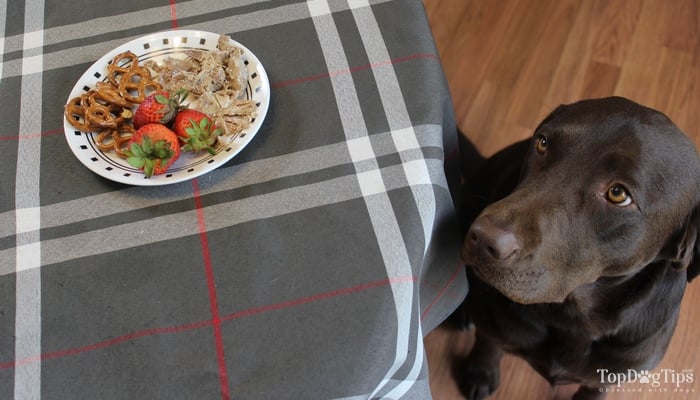My Labrador Retriever is a bottomless pit. It seems as if she can never get enough to eat. This left me asking the question, why are dogs always hungry?
Some dogs are picky eaters, like my Beagle mix, while others would eat until they made themselves sick. What is the difference? Why are some dogs so gluttonous?
Could your dog’s incessant hunger be a sign of a serious problem? I did a lot of research and consulted a veterinarian and a canine nutritionist to answer all of these questions and more.
Why Are Dogs Always Hungry?

1. A symptom to watch
If your dog is food obsessed, it could be a sign that there is an underlying health condition. Diseases that can cause excessive hunger in dogs include diabetes, Cushing’s disease and hyperthyroidism.
2. Boredom
Bored dogs will look for ways to entertain themselves. If your dog doesn't get enough mental stimulation, he may become food obsessed to pass the time.
Providing stimulation with toys, puzzle feeders, games or an entertaining walk will help to engage your dog and distract him from his food oriented ways.
3. Poor Diet
A poor diet is one of the leading reasons why are dogs always hungry. Many poor quality commercial dog food products include a high fiber content. The fiber makes your pooch feel fuller for a longer period of time.
While this might sound great, the fiber is taking up valuable space in the recipe. Your dog's biological requirement for high fiber foods is low, and these filler ingredients take the place of more nutrient dense ingredients that your dog's body needs.
In layman's terms, while he might feel full, he may not be getting the high quality nutrition that his body is craving. This will cause him to seek those nutrients from other sources, like garbage or counter surfing for human food.
4. Habit
Overeating may be a learned behavior that you have actually been teaching your dog. Giving your dog treats could be a habit that you need to break yourself.
Do you give your dog a snack every time he comes inside from doing his business? Does he get a treat first thing in the morning or right before bed? Maybe you give him a biscuit right before you leave for work every day?
Whatever your dog feeding routine is, it's time to change it up!
Dogs are smart. They are creatures of habit and pick up on consistent routines very quickly. When your dog asks for food, he might not actually be hungry. It may just be a habit that you need to help him break.
MORE: How Much Should You Feed Your Dog?

Dealing with a hungry dog
If your dog doesn't have any underlying health conditions and you're feeding him a high quality diet, there is a good chance that his food-obsessed behavior is just a habit. This means that you have reinforced the behavior enough times for him to have learned how to get what he wants.
In order to break this learned behavior and show your dog what behavior you expect, try these tips:
- Ignore the begging — If you continue to respond to his begging, your dog will never stop.
- Use his food motivation for training purposes – Even if your pup knows all of the basic commands, you can try trick training, agility training or nose work to put his food obsession to good use.
- Switch to healthy, whole food treats – Carrots, blueberries, peas, green beans or sweet potatoes all make great healthy treats that add a boost of nutrition to your pet's diet.
- Distract him – When your dog starts begging for food, find something to take his mind off of it. Play a game of tug, go out for a walk or get out one of his favorite toys.
It might not be his fault
Some dogs only eat when they need to. Others will eat until they burst. Genetics can play a part in your dog's behavior with food.
Some dog breeds are more prone to being overweight and being more food obsessed than others. These breeds include:
- Beagles
- Labrador Retrievers
- Basset Hounds
- Dachshunds
- Bulldogs
- Pugs
Certain medications can also cause your dog to have an increased appetite. Common medications, such as prednisone, may make your dog feel hungry all the time. Hopefully this side effect will decrease as your dog's body gets used to the medication.
Finally, your dog's activity level plays a big part in how many calories that he needs to eat each day. If you have an active dog, he may need to eat more calories throughout the day than you are feeding him.
Consult your veterinarian or a canine nutritionist about how many calories your dog should be eating. If his caloric intake is on track, you can try feeding multiple smaller meals throughout the day to help your pup feel full between meals.
READ NEXT: Switching To A Homemade Dog Food Diet – 3 Things To Know












